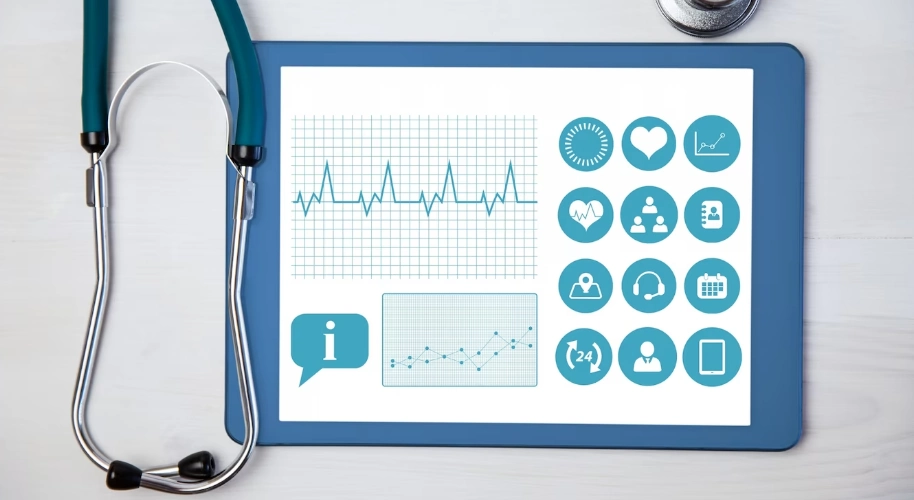-
Patients Get Better Care
Predictive analytics is a powerful tool for the healthcare industry because it allows access to all kinds of data, including medical history, demographics, economics, and comorbidities.
This data gives doctors and healthcare professionals valuable insights to guide their decision-making. Data-driven, better, and smarter decisions will lead to improved patient care.
Predictive analytics, for example, is used to improve patient critical care outcomes. Machine learning algorithms can be programmed by looking at the data and results of previous patients to give insights into treatment methods that work best for every patient.
-
Personalized Treatments
With the advancement of technology and the availability of vast amounts of patient data, the era of personalized medicine has emerged. Moving away from the "one-size-fits-all" approach, medical professionals now have access to detailed information about individual patients, enabling them to make precise diagnoses and tailor treatment plans accordingly.
This personalized approach considers not only the statistical trends of a larger population but also the unique characteristics and needs of each patient, leading to more effective and targeted interventions that ultimately enhance patient outcomes and improve overall healthcare quality.
-
Population Health Management
It is not only useful at the individual level. Healthcare organizations can use it to manage population health. Analytics can be used when data is available about a patient's current conditions, medications, and personal history.
It can help identify groups at risk of a disease outbreak. Healthcare professionals can begin to look at treatment options immediately in such a situation, improving the chances of survival.
-
Identify At-Risk Patients
Predictive analytics can help healthcare expert teams identify patients at higher risk and initiate early interventions to prevent deeper health conditions. For instance, it can determine which cardiovascular patients, based on their age, co-occurring chronic conditions, and drug compliance, are at a higher risk of hospitalization.
The ability to predict the likelihood of chronic disease can allow doctors and healthcare providers to provide proactive care rather than wait for patients at risk to visit for regular checkups. Other groups are at risk, such as elderly patients and those recently discharged from the hospital following invasive procedures.
-
Chronic Disease Management
Chronic diseases are the primary cause of death and disability and the major drivers of US healthcare costs of $3.5 trillion annually. Cancer, cardiovascular disease, and diabetes are the five chronic diseases responsible for 75% of healthcare expenditures.
The ability of healthcare professionals is crucial to the management of chronic diseases. They must be able to control and prevent these diseases. It is difficult to manage and prevent chronic conditions.
Predictive healthcare analytics can empower providers to make timely, fact-based decisions to deliver more effective treatments to patients while reducing costs.
-
Predicting Equipment Maintenance
Predictive analytics is used in other industries, such as manufacturing and telecoms, to predict maintenance requirements before they happen. Prognostics can be used in the healthcare industry.
Some components of machines degrade or wear out. By analyzing data from sensors on an MRI, predictive analytics can forecast failures and determine when a component needs to be replaced.
Knowing that hospitals can schedule maintenance when the health system or machines aren't in use. It minimizes workflow disruptions that can harm patients and care teams.
-
Healthcare Tracking & Digitalization
Digitalization has completely transformed the way patients and healthcare professionals interact. We can now attach devices to ourselves and monitor our health and performance from anywhere at any time using our smartphones.
Predictive analytics in healthcare can offer diabetic patients real-time tracking, for example, monitoring their blood sugar levels at any time without pricking their fingers.
However, if you are one of the individuals looking to develop predictive analytics in healthcare, hiring one of the best healthcare app development companies will be a great choice.
-
Prevent Human Errors
Human errors in healthcare can have devastating consequences, underscoring the need for data-driven solutions. Healthcare providers can proactively identify potential mistakes and take preventive measures in real time by leveraging advanced analytics.
It empowers medical professionals with accurate insights, improving patient outcomes and enhancing overall hospital management.
Integrating data-driven systems mitigates errors and enhances performance, ensuring optimal healthcare delivery and a safer environment for patients.
-
Fraud Detection
Fraud in the healthcare industry is, unfortunately, a very common problem. Healthcare fraud can take many forms. Prescription pills may be obtained and sold on the black market for profit by individuals who receive subsidies or coverage.
They might also modify medical records or report incorrect diagnoses or procedures to maximize payments. Predictive analytics in healthcare can identify abnormalities that flag fraudulent activities.
-
Reduction in Overall Healthcare Costs
Healthcare organizations can further optimize cost reduction strategies by harnessing the power of predictive analytics. Using predictive analytics in healthcare helps minimize patient acute care expenses and plays a crucial role in lowering overall healthcare costs by implementing value-based care models.
This data-driven approach enables healthcare providers to proactively identify and intervene in high-risk cases, leading to improved outcomes and more efficient allocation of resources.
Dev Technosys offers expert dedicated developers under a flexible Time and Material model to turn your vision into powerful, scalable digital solutions
"Healthcare is Not Just a Privilege. It is a Fundamental Human Right." - Dr. Paul Farmer
Healthcare professionals have struggled for a long period to help their patients recover. They have often been limited by their patients being human beings. When they have enough time, energy, information, and resources, they can only accomplish so much. Like every other industry with advanced healthcare application development, the healthcare industry is changing.
Industry transformation can be achieved through data. Through this healthcare app development, our healthcare professionals conclude how diseases are detected, how patients are treated, and how hospitals use their resources. It is vital to have accurate, real-time insights that can affect patients. It is where analytics can help.
With the use of predictive analytics, hospitals, healthcare organizations, and physicians may more easily access, analyze, and process patient data to deliver high-quality care, precise diagnoses, and tailored treatment plans based on data.
In this exclusive guide, we have made everything clear on predictive analytics in healthcare. So, don’t try to slide towards the exit zone and scroll down to read more!
What is Predictive Analytics in Healthcare?
Models and forecasts are used in predictive analytics solutions to predict future events. These predictions are used by physicians, researchers, medical specialties, pharmaceutical companies, and other stakeholders to deliver the best care possible for each patient.
Predictive analytics in healthcare can employ various modeling techniques to provide the best possible predictions. These include traditional hierarchical models, advanced AI, machine learning algorithms, and more traditional linear models.
AI is a group of technologies that can adapt and think independently. Machine learning is a subset of AI and involves creating models that describe data more accurately as new data is added. In healthcare, predictive analytics is based on artificial intelligence and machine learning machine learning to analyze historical data to forecast outcomes such as the disease risk of individual patients.
What is the Role of Predictive Analytics?
Predictive analytics has become a key component of personalized healthcare. Predictive models, which use AI and machine learning, can take in huge amounts of data about a patient to forecast their response to treatments and devices, their likelihood of developing a disease, and their prognosis.
What is personalized health app development? The customized treatment of a patient considers the individual's medical history, environment, social risks, genetics, and biochemistry.
The key to personalized health care is treating patients based on specific attributes instead of using population averages, which are not universal. Predictive analytics in healthcare helps the healthcare system move from treating patients as averages to treating them as individuals, improving quality, efficiency, and cost.
Benefits of Predictive Analysis in Healthcare
Analytics can make a huge impact on the healthcare industry with the advancement of technology. AI and machine-learning methods can identify illnesses, choose the best course of action for the patient, and do much more.
Here are some of the of using predictive analytics in healthcare:
The 12 Most Recent Use Cases of Predictive Analytics In Healthcare
Let's first determine the primary fields of application for predictive analytics in healthcare:
-
Diagnosis
Doctors can use healthcare predictive analytics software to diagnose the correct state of a patient based on their predicted progress.
-
Prognosis
Based on historical and current data, predictive analytics helps to predict how a condition will develop and how specific treatments will work.
-
Designing Treatment Courses
Based on diagnosis and prognosis, predictive analytics can determine the best course of action for the patient's treatment.
-
Clinical Decision Support
In order to help their patients, physicians can use clinical decision support systems that use predictive analytics.
-
Remote Monitoring
Predictive analytics in healthcare provide remote tracking of the patient's health. With the right equipment, remote predictive analysis is possible.
-
Improve Care Quality
Using predictive analytics in healthcare improves the quality of care and efficiency by reducing the number of errors. Predictive analytics healthcare is the greater choice for effective hospital management support.
-
Reduce Adverse Events
Predictive analytics can be used in healthcare to identify potential adverse events, such as the exacerbation of chronic diseases, the manifestation of medication side effects, and many others, early, allowing them to be avoided.
-
Reduce Healthcare Costs
Predictive analytics applications can help hospitals better manage their resources and reduce costs associated with an unexpected crisis. Hospital predictive analytics is one of the best practice examples in the healthcare industry that helps reduce costs.
-
Fraud Detection
Healthcare fraud is a problem that costs billions of dollars annually. Predictive analytics can be improved with machine learning models to find anomalies suggestive of fraud. This makes it easier to find them earlier.
Main Techniques in Predictive Analytics
Unleash Prediction Power with the Main Techniques of Predictive Analysis. Join us for a data-driven journey to informed decisions and endless possibilities!
-
Data Mining
Data mining is a method that can be used in predictive analytics to help gather medical data, transform it, and prepare it for analysis, modeling, and prediction formulation.
HIPAA requires that any patient data be treated with care and protected. Data mining should be done with an EMR/EHR software development that provides adequate privacy and security.
-
Data Modeling
Statistics are used to analyze historical data in data modeling, a type of predictive analysis. It helps create a detailed, time-based model that predicts future events.
Data mining is a statistical tool that identifies the possible outcomes of future events. For the best accuracy, the model must be updated and recalculated regularly. It makes the process more efficient with the help of other tools.
-
Artificial Intelligence
Artificial Intelligence (AI) is a branch of computer science that combines complex machine-learning algorithms and data processing methods. Its primary purpose is to mimic intelligent human behavior.
AI is one example of predictive analytics used in healthcare. It manages patient data to produce calculated predictions. AI's potential impact on the healthcare industry is not to be underestimated. It could eliminate human errors from the entire industry.
-
Machine Learning
Machine learning is part of AI science, and specific algorithms are being developed for machines to learn autonomously. The algorithms improve over time. It means that the more data they analyze, they get better.
Machine learning is a great tool for healthcare predictive analytics in the healthcare industry. Machine learning app development can gain more experience and make better predictions using the data available.
-
Deep Learning Algorithms
A branch of machine learning that uses artificial neural networks is called deep learning. They are designed to mimic the neural networks in the brain. With the help of modern multi-layered processing, artificial neural networks can make more precise predictions than the human brain.
Predictive healthcare analytics is used to analyze medical images, which is one of its major applications in healthcare. It can detect small deviations from MRI screens to microscopy pictures, helping diagnose issues early.
How Can Dev Technosys Help You With Predictive Analysis in Healthcare?
Dev Technosys can help you leverage the power of predictive analytics in healthcare. Our deep expertise in machine learning and data analysis allows us to empower healthcare organizations with valuable insights. Our team works closely with you to fully understand your challenges and goals. We at Deve Technosys can help you develop a healthcare app.
We are the leading healthcare mobile app development company that offers solutions from end-to-end that improve decision-making and resource allocation to better patient outcomes.
Dev Technosys gives you a competitive advantage by leveraging the power of predictive analytics in healthcare to transform healthcare delivery.
















